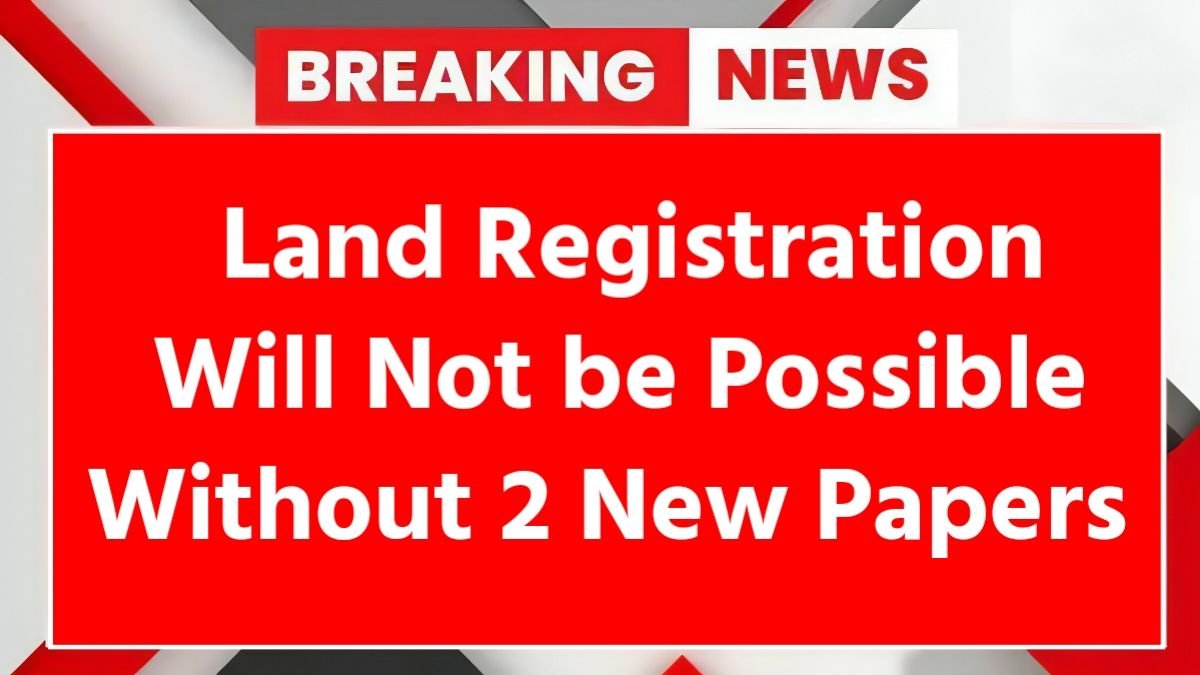Land Registry Rules 2025
The Land Registry Rules 2025 are a key part of the new reforms implemented by the Government of India, aimed at making land purchases and sales more secure, transparent, and dispute-free. Purchasing land in India is a major financial decision, so the government wants every registration to be based only on accurate and verified documents. From 2025, land registration will not be possible unless the buyer presents two new mandatory documents—specifically, an updated Land Ownership Certificate.
A Secure Registry Process with Digital Verification
The government has stated that digital verification of land records will now be mandatory before every registration. This will prevent fraudulent documents, false ownership claims, and fraudulent practices by middlemen. With the digital system, buyers will now be able to ensure the true owner of the land and whether the land is legally marketable.
Digitization will allow land records, maps, and registry status to be checked online. This will not only speed up the process but also prevent tampering with physical documents.
Objective of the New Rules
The primary goal of the Land Registry Rules 2025 is to eliminate common errors and frauds in the registry. Previously, many registries were based on outdated or incomplete documents, leading to thousands of land disputes. The new rules ensure that only the rightful owner can sell or register land.
Furthermore, reducing dependence on middlemen is also a major objective. Many buyers are unaware of the complete documentation rules, allowing agents to exploit them. The digital system reduces these problems and makes the process straightforward and secure.
Why the New Document Rules Were Implemented
The government observed that thousands of land disputes arise every year due to incorrect or fake documents. In many cases, fraudsters used fake papers to fraudulently transfer land. Complaints of fraudulent ownership claims were particularly high in states like Uttar Pradesh, Bihar, and Bengal.
Under the new system, all information will be digitally verified before the registry begins. This will reduce the likelihood of errors and ensure greater accountability. Additionally, this will reduce lengthy land disputes pending in court and enable quick identification of illegal encroachments.
How Digitization Will Change Land Registry in 2025
The digital registry system will make all land-related processes faster and easier. Citizens will no longer need to visit government offices to view records, view land maps, and check registry status. This will save time, money, and energy.
The government is working towards integrating records from all states onto a single platform under the Real Estate Transparency Mission 2025. This will improve coordination between the Revenue Department, Map Department, and Registry Office, eliminating the possibility of errors.
Benefits of the New Rules for Citizens
The biggest benefit is that land purchases will now become more secure and reliable. Mandatory Land Ownership Certificates and digital verification will ensure buyers know upfront that the land is not fictitious and free of disputes. This will virtually eliminate the possibility of fraud, duplicate sales, and incorrect registrations.
The new system will reduce dependence on intermediaries as citizens can now complete many processes online themselves. The registry process will also be faster as most verification will be digital. Future document corrections and updates will also become easier as all records will be stored in one place.
Conclusion
The Land Registry Rules 2025 are a major step towards modernizing, transparent, and secure India’s land registry system. With digital verification, mandatory ownership certificates, and a centralized record system, purchasing land will become easier and more reliable than ever before. This reform will increase citizens’ confidence in the real estate market and significantly reduce fraud.
Disclaimer: This article is for informational purposes only. Before any land transaction, be sure to verify information with government official regulations and local authorities.
